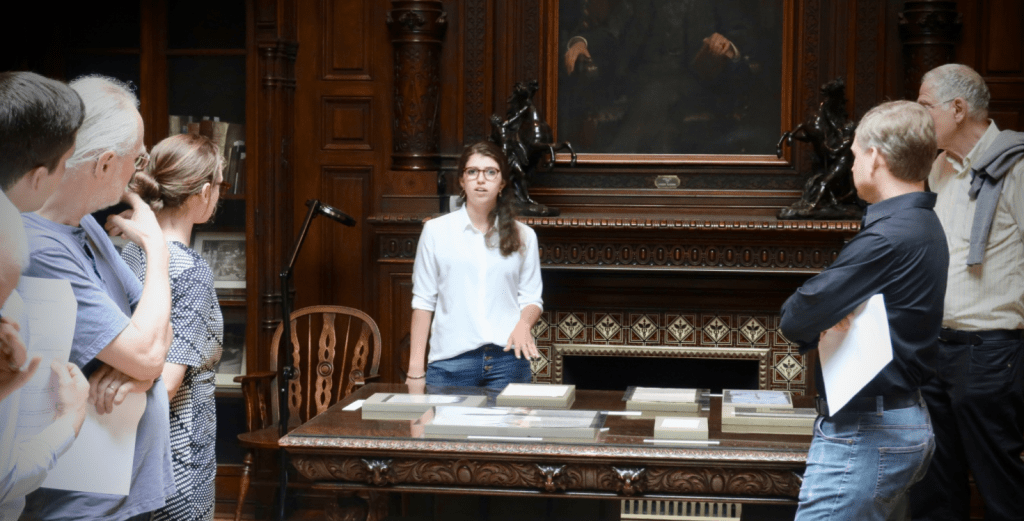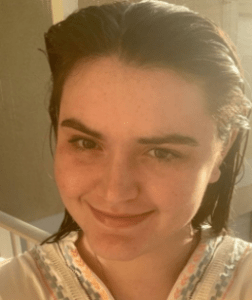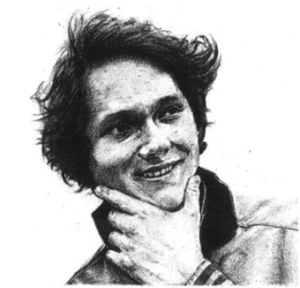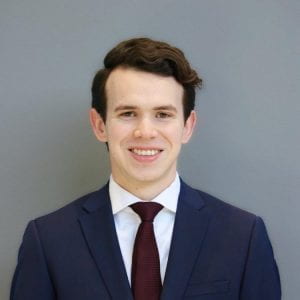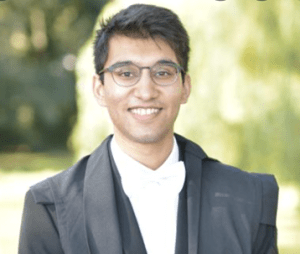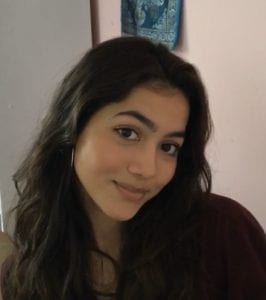PRRUCS Fellowships
PRRUCS-Supported Fellowships
Since the start of 2019 through August 2022, the Program for Research on Religion and Urban Civil Society (PRRUCS) supported 515 fellowships through diverse fellowship programs. These programs, which are listed and described below, include individual research and service projects as well as cohort programs in collaboration with the Collegium Institute such as Medical Humanities; Legal Humanities; Philosophy of Finance; and Theology & Scholarship.
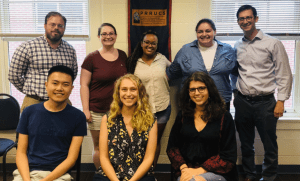 PRRUCS-Perry Research & Service Fellowships: 54 fellowships
PRRUCS-Perry Research & Service Fellowships: 54 fellowships
For students working with a PRRUCS senior scholar or faculty affiliate, with each of these fellows undertaking a concrete research and/or interfaith service-learning project that assist the fellows to identify, develop, and apply their distinctive talents, skills, and ambitions. Among the diverse student research projects supervised include a paper on G.E.M. Anscombe and feminist theory, a study of universal basic income initiatives in India, a syllabus draft for a new course on global religion, an editing project on a special journal on faith-based anti-poverty initiatives in American urban settings, and a podcast episode on transcendentalism in classical Japanese artistry. The Fellows engaged in service-learning study texts related to social service in a variety of religious traditions, meet and learn from local leaders of faith-based non-profit institutions that address social needs, work together on common service projects with staff and volunteers for a faith-based institution, and reflect together in a seminar-like setting on the relationship between what they studied and what they experienced during the service project.
PRRUCS Interfaith Service-Learning Fellowships: 14 fellowships
To what extent does religion contribute to civic service? Fellows engaged in these service-learning fellowships study texts related to service in a variety of religious traditions, meet and learn from local leaders of faith-based non-profit institutions that address social needs, work together on common service projects with staff and volunteers for a faith-based institution, and reflect together in a seminar-like setting on the relationship between what they studied and what they experienced during the service project.
Medical Humanities Fellowship: 150 fellowships
What are the core values of medical practice, and have they changed over time? What is wellness in a holistic sense? How can a profession focused on health help us to deal with death? And how can art and storytelling impact the patient experience? Over six sessions, each of which are jointly facilitated by clinicians and/or scholars in the humanities, Medical Humanities Fellows explore these questions and ask what it might mean to align their medical practice with the tradition of virtue ethics and integral humanism. By the end of the semester, student fellows formulate and submit a personal philosophy of clinical practice, reflecting an approach to medicine which is human-centered rather than problem-centered.
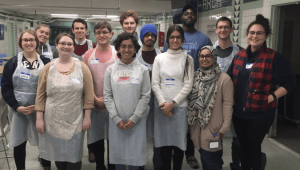 Philosophy of Finance Fellowship: 120 fellowships
Philosophy of Finance Fellowship: 120 fellowships
The Philosophy of Finance Fellowship meets five times per semester and draws together undergraduate and graduate students to explore the work of various important thinkers in order to address the fundamental questions raised by the practice of finance. This past academic year (AY 2021-22), the theme of the Fellowship was Markets and the Environment. The Fellowship’s Director, Dr. Mike Kane, facilitated the series together with special guest facilitators who were either Penn faculty or finance practitioners.
Legal Humanities Fellowship: 84 fellowships
The Legal Humanities Fellowship program, which debuted in Spring 2020, welcomes an intimate cohort of fellows to participate in six sessions that explore the relationship between law and the good life. Each session is facilitated by academics and professionals in law, history, literature, and philosophy. By the end of the semester, fellows compose statements of academic findings and professional discernment. In spring 2022, the theme of the fellowship was “Law and the Common Good,” discussing the meaning of the common good as a philosophical and legal principle. The Fellowship featured guest facilitators and practitioners who helped students consider how this understanding of our humanity can lead to a more humane legal profession.
Graduate Students Theology & Scholarship Fellowship: 93 fellowships
The Graduate Fellows Program was founded in 2013 by graduate and professional students throughout the University of Pennsylvania, all of whom were united by an interest in bringing their respective disciplines into dialogue with humanistic and theological traditions. As part of the program, students attend the Graduate Colloquia in which students from many disciplines and schools study special topics in theology in relation to their own fields of scholarship. In this next year’s Collegium Graduate Colloquia (AY 2022-23), we will explore the modern conciliar tradition and its impact on the history of religion.
How to Apply
- 12-Month Penn Tierney Fellowship in Non-Profit Leadership: New Orleans
- Flexible start date, but no later than January 2023.
- Application cycle now open and candidate review to begin September 15.
- Click here for more information and to apply prrucs.upenn.edu/fellowships/Tierney
- PRRUCS-Perry Research and Service Fellowships (Paid)Check Back Soon for an Announcement of the Fall 2022 Fellowship Application Process.Click here to see a sample of previous fellowship instructions
- PRRUCS Interfaith-Service Learning Fellowships Examples includeFall 2019 PRRUCS Service-LearningSpring 2019 PRRUCS Service-Learning
Meet the 2022 PRRUCS-Perry Research & Service Fellows
Vito Acosta C’22
Vito Acosta C’22 assisted Dr. Daniel Cheely in conducting research on a significant landmark of Chinese feminist literature for the Global Catholic Literature project. Ji Xin (Heart of the Thorn Bush), a mid-20th century international coming-of-age novel, is sometimes recognized among the 100 greatest Catholic novels and was authored by Su Xuelin, who has been called “the Mother of Chinese Literary Criticism.” Yet there has never been an English translation of it. Vito conducted an extensive literature and intellectual property review to determine how well the novel might translate into English, who its primary audience might be, and what impediments there might be to obtaining the rights to translate and publish it. He is now embarking on a new project with a world renowned Xuelin scholar in order to translate the novel into English.
Lisa Eshleman C’22
Lisa Eshleman C’22 assisted Dr. Daniel Cheely and Dr. Margaret Hogan with the Medical Humanities Fellowship series, a monthly seminar in which students across the healthcare community undertake humanistic inquiry into fundamental questions about medicine. Lisa helped to research and assemble the readings for the Fellowship, promoted it and recruited new student participants, and provided logistical support.
Andrew Figuieredo L’22
Andrew Figuieredo L’22 assisted Dr. Terence Sweeney with development of the Legal Humanities Project, which draws together a cohort of students, scholars, and practitioners over six sessions to explore how the theory and practice of law can be directed toward a good life. Together with another PRRUCS-Perry Fellow and Dr. Sweeney, Andrew formulated the spring theme, “Law and the Common Good”, helped scaffold a curriculum into six sessions, identified and recruited facilitators, and helped select readings. Andrew co-coordinated the series and ensured a thriving fellowship cohort sequence by making periodic adjustments.
Sam Hatfield C’22
Samuel Hatfield C’22 assisted Partners for Sacred Places, a non-profit organization dedicated to the preservation and good stewardship of houses of worship in the United States, with the gathering of data on how religious properties are affected by different sectors of society, such as philanthropy or historic preservation. This involved combing through the existing academic research on how these sectors affect sacred places and using the findings to develop surveys for leaders of these places and the organizations that they are connected to.
Will Heaston L’23 / G’24
Will Heaston L’23 / G’24 assisted Dr. Terence Sweeney with development of the Legal Humanities Project, which draws together a cohort of students, scholars, and practitioners over six sessions to explore how the theory and practice of law can be directed toward a good life. Together with another PRRUCS-Perry Fellow and Dr. Sweeney, Andrew formulated the spring theme, “Law and the Common Good”, helped scaffold a curriculum into six sessions, identified and recruited facilitators, and helped select readings. Andrew co-coordinated the series and ensured a thriving fellowship cohort sequence by making periodic adjustments.
Andrew Lowrance C’22
Andrew Lowrance C’22 assisted Dr. Jessie Taylor, a physicist, on the Magi Project to help develop a respectful conversation among scientists, humanities scholars, and religious communities. He assisted her with the development and coordination of a summer interdisciplinary conference, “What is Life?”, the collected papers of which will be published in a special edition of the PRRUCS Journal. He also developed writing, editing, and management experience by spearheading a relaunch of the Commonplace Book blog, which released one student essay per week starting in Spring 2022.
Ammar Plumber MA’22
Ammar Plumber, MA’22, has worked to develop a curriculum for the Philosophy of Finance Program. He helped to develop the topic and themes for each session, involving economics, history, ethics, and the common good. He will help to lead and facilitate sessions in the fall.
Miriam Shah C’22
Miriam Shah C’22 worked with Joe Perez-Benzo in the Elizabeth Anscombe archive in order to file the various works therein. She helped to find articles and works in order to organize and account for them. Miriam also participated in Collegium’s presentation of the archive at the Lea Library, where she spoke briefly about her experience working with the materials.

